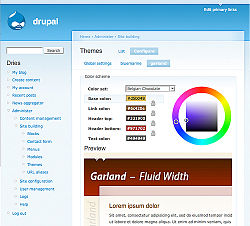Koha is the first open-source Integrated Library System (ILS).
In use worldwide, its development is steered by a growing community of libraries collaborating to achieve their technology goals. Koha's impressive feature set continues to evolve and expand to meet the needs of its user base. .
Why Koha ?
Full-featured ILS. In use worldwide in libraries of all sizes, Koha is a true enterprise-class ILS with comprehensive functionality including basic or advanced options. Koha includes modules for circulation, cataloging, acquisitions, serials, reserves, patron management, branch relationships, and more. For a comprehensive overview of features visit the Koha feature map. .
Dual Database Design.
Koha uses a dual database design that utilizes the strengths of the two major industry-standard database types (text-based and RDBMS). This design feature ensures that Koha is scalable enough to meet the transaction load of any library, no matter what the size. .
Library Standards Compliant.
Koha is built using library standards and protocols that ensure interoperability between Koha and other systems and technologies, while supporting existing work-flows and tools. .
Web-based.
Interfaces. Koha's OPAC, circulation, management and self-checkout interfaces are all based on standards-compliant World Wide Web technologies--XHTML, CSS and Javascript--making Koha a truly platform-independent solution. .
Free / Open Source.
Koha is distributed under the open-source General Public License (GPL). More information on the GPL can be found here. Koha is available for free download and also in OpenLX DVD.
No Vendor Lock-in.
It is an important part of the open-source promise that there is no vendor lock-in: libraries are free to install and use Koha themselves if the have the in-house expertise or to purchase support or development services from the best available source. For more information about obtaining support visit the support page
Koha 3 Library Management System Free Library and Information Science Software: Evergreen, Koha, Digital Repository Audit Method Based on Risk Assessment, Newgenlib, Phpmybibli
Free Library and Information Science Software: Evergreen, Koha, Digital Repository Audit Method Based on Risk Assessment, Newgenlib, Phpmybibli





